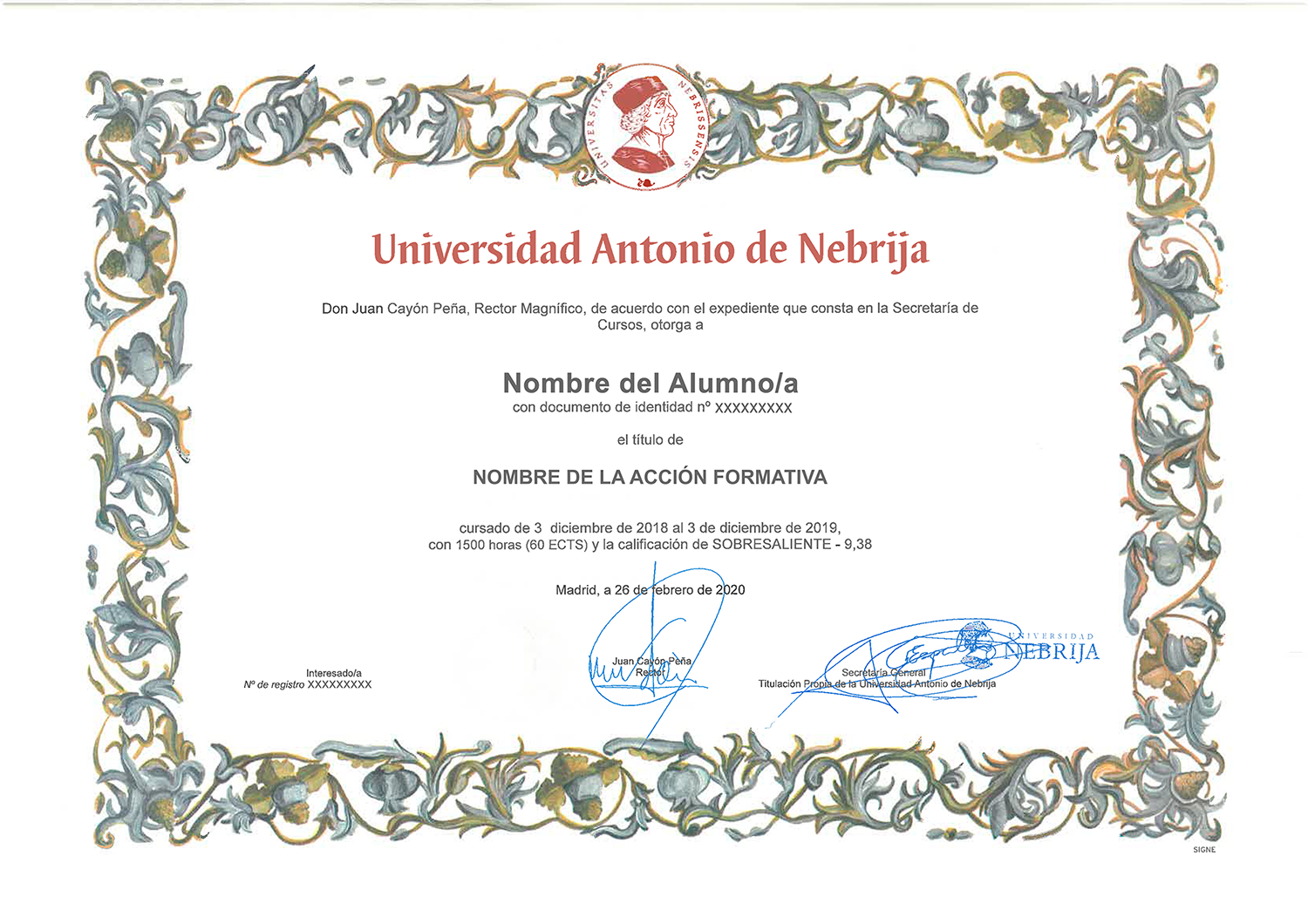Official University Master in early care. RUCT 4318356


Request information


Syllabus
Download syllabus in PDFCurriculum
Summary
Early care is defined as the set of interventions aimed at the student population, their family and their environment, which aim to respond as soon as possible to the transitory or permanent needs presented by children with disorders in their development or who have the risk of suffering them, as indicated by the White Paper of Early Care prepared by the Royal Board of Trustees on the disability of the Ministry of Labor and Social Affairs. This White Paper of Early Care was first published in the year 2,000 and has required the elaboration of 3 editions and the distribution of 8,500 copies, as a sign of the high demand that exists on the subject today. The data included in this memory have been extracted from the 3rd edition of the White Paper of Early Care, in 2005
Goals
Professional opportunities
To prepare you
The university master's degree in early care enables students to evaluate children to show alterations in their development with the aim of determining whether they are candidates for an early care program. They will also be trained to develop an early care program based on the development deficit presented by the child. Students will have comprehensive working skills in a multidisciplinary team and taking as reference the family environment of the child. The student will receive a degree as a university master's degree at an early care from the Antonio de Nebrija University with 60 ECTS credits.
Who is it addressed to?
Early care is defined as the set of interventions aimed at the student population, their family and their environment, which aim to respond as soon as possible to the transitory or permanent needs presented by children with disorders in their development or who have the risk of suffering them, as indicated by the White Paper of Early Care prepared by the Royal Board of Trustees on the disability of the Ministry of Labor and Social Affairs. This White Paper of Early Care was first published in the year 2,000 and has required the elaboration of 3 editions and the distribution of 8,500 copies, as a sign of the high demand that exists on the subject today. The data included in this memory have been extracted from the 3rd edition of the White Paper of Early Care, in 2005
Official Character
This training is included within the scope of the official formation regulated in Spain, complying with all the requirements established by the corresponding educational authorities. This training is officially recognized and its validity is guaranteed by the educational institutions and relevant regulatory agencies. As it is an official training, it is directly applicable and valuable in selection processes, work bags, opposition competitions, as well as in professional promotion within the public and private sphere.

Our methodology combines technology, pedagogy and empathy for learning tailored to you.
You set the pace, decide the path and artificial intelligence accompanies you so that you learn better, with meaning and purpose.

Truly personalized learning
Your style, interests and level define the route. You are the starting point.

Constructivism in action
Explore, experiment and apply. Learning means understanding, not memorizing.

AI that accompanies you, not directs you
PHIA, our artificial intelligence assistant guides you without limiting your autonomy.

Evaluation without pressure
Continuous and adaptive feedback. Because learning is a process, not a number.
Certification


Official Master's degree at early care issued by the Nebrija University with 60 ECTS credits. Number in the Registry of Universities, Centers and Titles (RUCT): 4318356. It is an official postgraduate program, R.D. 1393/2007 of October 29 (B.O.C.M. of October 30, 2007). It is a university and official degree, recognized by the Ministry of Education, adjusted to the Bologna Plan.

EducaHub Scholarships
Make your training more accessible: finance at 0% interest and obtain personalized scholarships.
At EducaHub we believe that education should be available to everyone. For this reason, we offer a Scholarship Plan that facilitates your access to practical, current and quality training, eliminating economic barriers.
-25%
Alumni Scholarship: for former EducaHub students.
-20%
Unemployment Scholarship: if you prove that you are unemployed.
-20%
Large Family Scholarship: for families with 3 or more children.
-20%
Disability Scholarship: for people with disabilities ≥33%.
-15%
Emprende Scholarship: for self-employed workers who can prove their activity.
-15%
Recommended Scholarship: if you come recommended by a former student.
-15%
Group Scholarship: for joint registrations of 3 or more people.

An entire educational universe, on a single platform.
An intuitive environment with AI that guides you to train autonomously and with purpose.

Learn at your pace
Courses, master's degrees and official qualifications. 100% online, flexible and at your pace.

Access from anywhere
Available 24/7 on mobile, tablet or PC. You decide when and how to train.

Phia, your AI mentor
It challenges you, motivates you and personalizes your path. Learn with a guide that evolves with you.

LX One Plus: Training without limits
Unlock soft skills, languages and more. Move towards comprehensive and continuous training.



